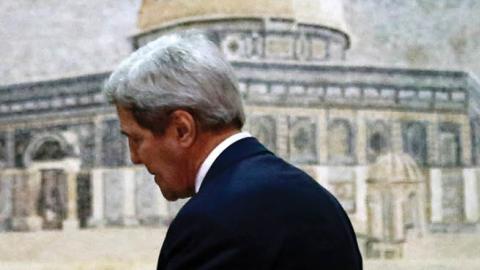For nearly three decades, Shany Mor argues, the peace-processing “guild” has advanced the same ideas about how to broker Arab-Israeli peace—ideas which are not simply questionable, but flat out wrong. The incentives they offer to Arabs and Israelis alike generate the opposite results from the ones that guild members intend. Despite a long list of failures, and despite the fact that individual figures from within the guild have written books acknowledging the shortcomings of their approach, the guild as a body remains wedded to a fuzzy-headed and unchanging conventional wisdom that has proven remarkably resistant to sober-minded reappraisals. Characterized by epistemic closure, the guild’s belief system is protected by two layers of intellectual armor. The first is the certitude that comes from only consuming in-group analyses of the Middle East. The second is a quasi-religious sensibility: the peace processors are men and women on a mission.
The goal of their mission is to save Israel in spite of herself. The key to making peace, the guild sanctimoniously believes, is to restrain Israel, and to force it to compromise. It seeks, Mor writes, “to rescue a fallen Israel, morally compromised by its own hard-fought victories.” The guild treats every Israeli military success as an effort to evade the just and moral course that they, the peace processors sitting in Washington, have mapped out for the Jewish state. Mor, an Israeli, finds the quasi-religious attitudes of the American guild inexplicable. “Why victory makes Israel morally fallen, I’m not sure, because no one has ever managed to explain it to me,” he writes.
I believe I can explain these attitudes. To do so, we’ll need to ask questions not about Israel but about how the guild’s idiosyncratic beliefs first managed to gain a purchase on such a large and diverse group of people. Why do they maintain that purchase even as the original Oslo generation of peace processors begins to retire, and a new generation rises up? In short, what are the origins of the guild’s missionary zeal?
Read the full article in Mosaic














